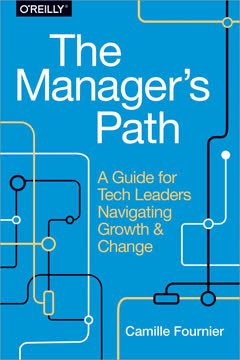Key Takeaways
1. AI-Assisted Programming: A Revolutionary Tool for Developers
"The hottest new programming language is English."
Transforming coding practices: AI-assisted programming tools are revolutionizing software development by allowing developers to generate code using natural language prompts. This shift enables programmers to focus on high-level problem-solving and innovation rather than getting bogged down in syntax details. Tools like GitHub Copilot, Amazon CodeWhisperer, and Google's Duet AI are at the forefront of this transformation, offering features such as code suggestions, context-aware completions, and automated bug detection.
Productivity boost: Studies have shown significant productivity gains from using AI-assisted programming tools. For instance, Microsoft reported that developers using GitHub Copilot completed tasks 55% faster than those who didn't. Similarly, Amazon found that developers using CodeWhisperer were 27% more likely to successfully finish tasks and did so 58% faster. These tools are particularly effective for handling repetitive tasks, generating boilerplate code, and providing quick solutions to common programming challenges.
2. Understanding the Mechanics of AI Coding Technology
"Think of it like having a bilingual genie in your computer, ready to transcribe your English wishes into code commands."
Foundation of AI coding: At the heart of AI-assisted programming tools are large language models (LLMs) based on transformer architecture. These models, such as GPT-4 and LLaMA 2, are trained on vast amounts of code and natural language data, enabling them to understand and generate human-like text and code. The key components of these systems include:
- Encoder-decoder structure for processing input and generating output
- Attention mechanisms for focusing on relevant parts of the input
- Self-attention for understanding context across long sequences
- Positional encoding to maintain word order information
Customization and fine-tuning: Many AI-assisted programming tools allow for customization to specific codebases or programming styles. This is achieved through fine-tuning the models on company-specific data or allowing user feedback to improve suggestions over time.
3. Mastering Prompt Engineering for Effective AI Interaction
"Prompt engineering is a mix of art and science."
Key components of effective prompts:
- Context: Specifying the role or persona for the AI to adopt
- Instructions: Clear directives on what to do or create
- Input content: Providing necessary information for processing
- Format: Specifying the desired output structure
Best practices:
- Be specific and clear in your instructions
- Use special symbols like ### or """ to separate instructions from content
- Implement few-shot learning by providing examples
- Utilize leading words to guide the AI towards specific outputs
- Apply chain-of-thought prompting for complex tasks
Reducing hallucinations: To minimize AI-generated inaccuracies:
- Avoid open-ended questions
- Provide predefined options when possible
- Ask for specific types of conclusions or formats
- Break down complex tasks into multiple steps
4. GitHub Copilot: Leading the AI-Assisted Programming Revolution
"GitHub Copilot is turning heads because they're improving productivity without sacrificing quality."
Key features:
- Code suggestions and completions
- Chat functionality for code explanations and problem-solving
- Inline chat for contextual assistance
- Command-line interface integration
Versions and pricing:
- Individual: $10/month
- Business: $19/user/month
- Enterprise: $39/user/month (with custom model training)
Real-world impact: Companies like Shopify, Accenture, and AMD have reported significant productivity gains and improved code quality using Copilot. For instance, Shopify developers accepted 26% of Copilot's code suggestions, while Accenture saw a 50% increase in pull requests and a 15% rise in merge rates.
5. Exploring Alternative AI-Assisted Programming Tools
"AI-assisted programming tools are shaking things up for developers, offering some seriously cool new abilities."
Notable alternatives to GitHub Copilot:
- Amazon CodeWhisperer: Integrates well with AWS services
- Google's Duet AI: Supports over 20 programming languages
- Tabnine: Pioneering AI-assisted coding tool with strong security focus
- Replit: Web-based IDE with built-in AI capabilities
- Cody by Sourcegraph: Emphasizes code search and understanding
Open-source options:
- Meta's Code Llama: Supports multiple programming languages
- StableCode by Stability AI: Based on the BigCode project
- AlphaCode by DeepMind: Excels in competitive programming scenarios
Enterprise solutions: Major software companies like SAP, ServiceNow, and Salesforce are developing their own AI-assisted coding tools, integrating them with their existing product ecosystems.
6. Leveraging ChatGPT and General-Purpose LLMs for Coding
"ChatGPT can be your translator. It breaks down these complex ideas into bite-sized, easy-to-digest explanations."
Versatile applications:
- Explaining complex coding concepts
- Generating code snippets and starter code
- Assisting with regular expressions and bash commands
- Creating and analyzing GitHub Actions workflows
- Helping with database queries and API interactions
Key features of ChatGPT for coding:
- Ability to handle multiple programming languages
- Real-time web browsing for up-to-date information (with GPT-4)
- Customizable instructions for tailored responses
- Integration with plugins for extended functionality
Other general-purpose LLMs:
- Google's Gemini: Offers advanced coding capabilities and real-time internet access
- Anthropic's Claude: Boasts a large 100,000 token context window, ideal for handling extensive codebases
7. Streamlining Software Development with AI: From Ideas to Deployment
"AI tools can take the edge off those boring bits of software development."
AI-assisted stages of development:
- Brainstorming and idea generation
- Market research and competitive analysis
- Requirements gathering and documentation
- Project planning and approach selection
- Wireframing and UI/UX design
- Code generation and refactoring
- Testing and debugging
- Deployment planning and execution
Benefits of AI integration:
- Accelerated development cycles
- Improved code quality and consistency
- Enhanced problem-solving capabilities
- Streamlined documentation processes
- Efficient handling of repetitive tasks
8. Enhancing Coding Efficiency and Quality with AI Tools
"AI-assisted programming tools are far from perfect. That's why it's important to keep your eyes peeled and double-check everything."
Key areas of improvement:
- Code generation: Quickly create boilerplate code and common patterns
- Refactoring: Identify and suggest improvements for code structure
- Debugging: Analyze error messages and suggest potential fixes
- Testing: Generate unit tests and identify edge cases
- Documentation: Automatically create code comments and documentation
Best practices:
- Use AI tools as assistants, not replacements for human judgment
- Verify and test AI-generated code thoroughly
- Combine AI suggestions with personal coding expertise
- Stay updated on the latest AI tool features and capabilities
- Integrate AI tools into existing development workflows gradually
9. Overcoming Challenges in AI-Assisted Programming
"AI-assisted programming tools are extremely helpful, but they're not about to replace the savvy and know-how of real, live engineers."
Common challenges:
- Potential for generating incorrect or insecure code
- Overreliance on AI suggestions
- Privacy and security concerns with code sharing
- Intellectual property issues with generated code
- Keeping up with rapidly evolving AI technologies
Strategies for effective AI integration:
- Implement strong code review processes
- Provide clear guidelines for AI tool usage within development teams
- Regularly update and fine-tune AI models with company-specific data
- Invest in ongoing training for developers on AI tool capabilities and limitations
- Balance AI assistance with human creativity and problem-solving skills
Last updated:
FAQ
What's "AI-Assisted Programming: Better Planning, Coding, Testing, and Deployment" about?
- Overview: The book by Tom Taulli explores how AI tools like GitHub Copilot and ChatGPT can enhance various stages of software development, from planning to deployment.
- Focus Areas: It covers the integration of AI in coding, testing, and deployment processes, emphasizing the benefits and challenges of using AI-assisted programming tools.
- Practical Guidance: The book provides practical advice on leveraging AI tools to improve productivity and code quality, with real-world examples and case studies.
- Audience: It's aimed at developers of all experience levels who are interested in incorporating AI into their workflows.
Why should I read "AI-Assisted Programming"?
- Stay Competitive: Understanding AI-assisted programming is becoming essential for developers to stay competitive in the evolving tech landscape.
- Increase Productivity: The book offers insights into how AI tools can significantly boost productivity by automating routine tasks and providing intelligent code suggestions.
- Learn from Experts: It includes expert opinions and case studies from industry leaders, providing a comprehensive view of AI's impact on software development.
- Future-Proof Skills: By learning about AI tools now, developers can future-proof their skills and be prepared for further advancements in AI technology.
What are the key takeaways of "AI-Assisted Programming"?
- AI's Role in Development: AI is transforming software development by automating tedious tasks and enhancing coding efficiency.
- Prompt Engineering: Crafting effective prompts is crucial for getting the most out of AI tools, blending creativity with technical understanding.
- Security and Privacy Concerns: While AI tools offer many benefits, they also pose challenges related to security, privacy, and intellectual property.
- Continuous Learning: The field of AI-assisted programming is rapidly evolving, requiring developers to continuously update their skills and knowledge.
How does "AI-Assisted Programming" address the learning curve for AI tools?
- Steep Learning Curve: The book acknowledges the steep learning curve associated with AI tools, especially for those accustomed to traditional programming methods.
- Mindset Shift: Developers need to adapt to the unpredictability and autonomy of AI models, which requires a shift in mindset.
- Practical Examples: It provides practical examples and exercises to help readers become familiar with AI tools and their applications.
- Ongoing Education: Emphasizes the importance of continuous learning and staying updated with the latest advancements in AI technology.
What are the benefits of using AI-assisted programming tools according to "AI-Assisted Programming"?
- Increased Efficiency: AI tools can significantly reduce the time spent on routine coding tasks, allowing developers to focus on more complex problems.
- Enhanced Code Quality: By providing intelligent code suggestions and automating documentation, AI tools can improve the overall quality of the codebase.
- Real-Time Assistance: These tools offer real-time feedback and suggestions, helping developers maintain their workflow and stay in the "flow" state.
- Customization and Learning: AI tools can learn from a developer's coding style and adapt to provide more relevant suggestions over time.
What are the drawbacks of AI-assisted programming tools mentioned in "AI-Assisted Programming"?
- Intellectual Property Issues: The book highlights concerns about the ownership of AI-generated code and potential copyright infringements.
- Security Risks: AI-generated code may contain security vulnerabilities, requiring thorough testing and validation before deployment.
- Privacy Concerns: There are potential privacy issues related to the data used to train AI models and the data input by developers.
- Inconsistent Quality: The quality of AI-generated code can vary, and developers must be vigilant in reviewing and refining the output.
How does "AI-Assisted Programming" explain prompt engineering?
- Art and Science: Prompt engineering is described as a blend of art and science, requiring creativity and technical understanding to craft effective prompts.
- Key Components: The book outlines the main components of a prompt, including context, instructions, input, and output format.
- Challenges: It discusses challenges such as wordiness, ambiguity, and non-transferability between different AI models.
- Best Practices: Offers best practices for writing prompts, such as being specific, using examples, and avoiding leading questions.
What role does "AI-Assisted Programming" suggest AI tools play beyond programming?
- Project Planning: AI tools can assist in brainstorming, market research, and drafting requirements documents for software projects.
- Marketing and Launch: They can help create marketing plans, draft promotional content, and analyze user feedback post-launch.
- Documentation: AI can automate the creation of user manuals, FAQs, and other documentation, improving communication and productivity.
- Continuous Improvement: AI tools can analyze user feedback to identify areas for improvement and suggest new features or enhancements.
What are the best quotes from "AI-Assisted Programming" and what do they mean?
- "AI is rapidly changing how developers build software." This quote emphasizes the transformative impact of AI on the software development process.
- "Understanding AI-assisted programming tools is a critical skillset." It highlights the importance of learning AI tools to remain relevant in the tech industry.
- "AI tools are handy for more than just coding." This underscores the versatility of AI tools in various aspects of software development, beyond just writing code.
- "The technology is evolving at a rapid pace." This reflects the dynamic nature of AI technology and the need for developers to continuously adapt and learn.
How does "AI-Assisted Programming" address security and privacy concerns?
- Security Features: The book discusses security features in AI tools, such as code scanning and secret scanning, to identify vulnerabilities.
- Privacy Policies: It emphasizes the importance of robust data handling and privacy policies to protect sensitive information.
- Customization Options: Some AI tools offer customization options to align with an organization's security and privacy standards.
- Ongoing Vigilance: Developers are encouraged to remain vigilant and conduct thorough testing to ensure the security and privacy of AI-generated code.
How does "AI-Assisted Programming" suggest AI tools can help with debugging and testing?
- Error Identification: AI tools can help identify syntax and logical errors by analyzing code and providing suggestions for fixes.
- Automated Testing: They can automate the creation of unit tests, ensuring code reliability and reducing the risk of bugs.
- Code Review Assistance: AI can assist in code reviews by highlighting potential issues and suggesting improvements.
- Continuous Integration: AI tools can integrate with CI/CD pipelines to automate testing and deployment processes, improving efficiency.
What does "AI-Assisted Programming" say about the future of AI in software development?
- Rapid Advancements: The book predicts rapid advancements in AI technology, leading to more sophisticated and capable tools.
- Increased Adoption: As AI tools become more powerful, their adoption in the software development industry is expected to increase.
- New Opportunities: AI will create new opportunities for developers to innovate and improve software quality and efficiency.
- Ongoing Learning: Developers will need to continuously update their skills and knowledge to keep pace with AI advancements and remain competitive.
Review Summary
Ai-assisted Programming receives positive reviews as an introductory guide to AI-powered coding assistants. With an overall rating of 4.14/5, readers find it practical and pragmatic, offering best practices for leveraging AI in programming tasks. The book is praised for its balanced approach, addressing both benefits and potential pitfalls. While some consider it entry-level, it provides valuable prompt suggestions and guidance for programmers looking to make the most of AI tools. It's recommended for those new to or struggling with AI coding assistants.
Similar Books







Download PDF
Download EPUB
.epub digital book format is ideal for reading ebooks on phones, tablets, and e-readers.





